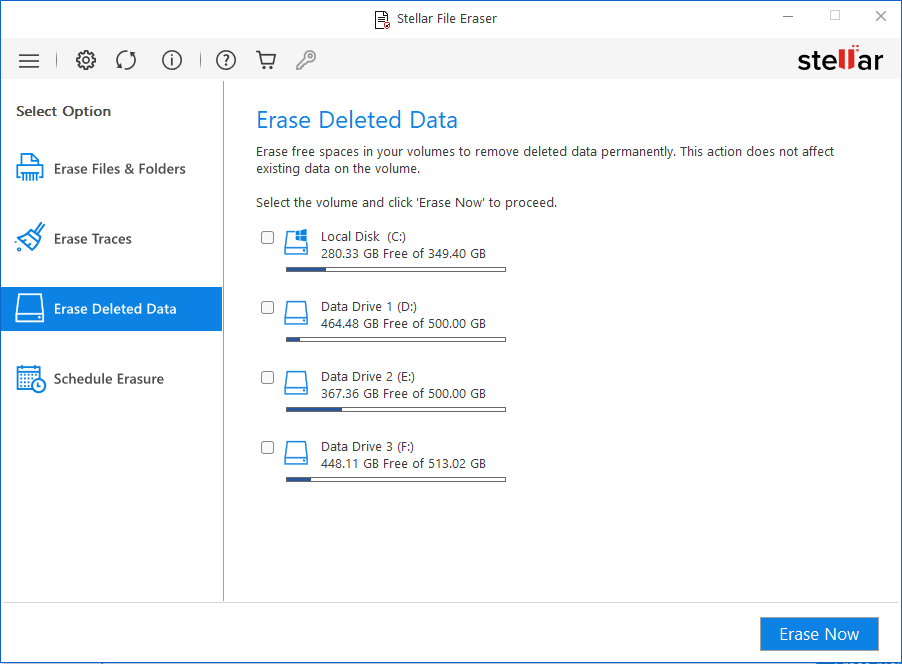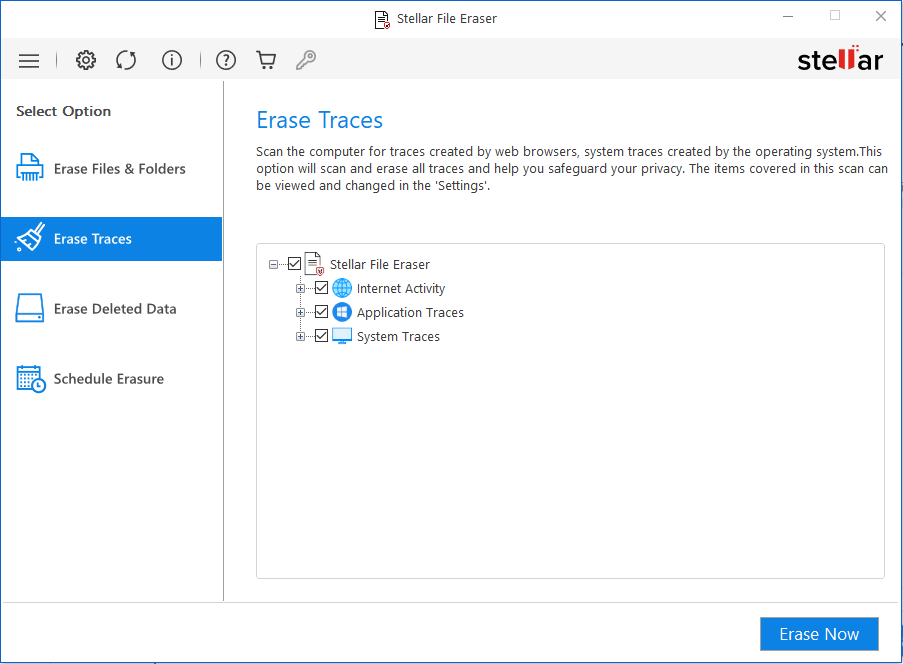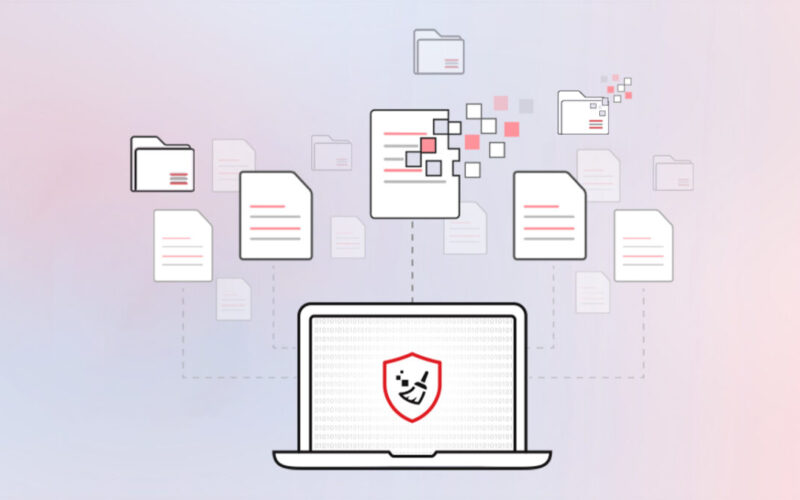Our team is always looking for things we think our readers will value. We have received compensation for publishing this article.
Each time you delete a file from your computer, you probably think that file is gone for good. In reality, though, it will more than likely have traces hanging around on your hard drive for anybody with the right tools to recover and access it. Clearing space simply doesn’t cut it; it’s all about privacy protection and threat mitigation. Would you like to know why?
Common File Deletion Misconceptions
When you delete a file, it doesn’t really disappear. It goes on prowling around your drive, waiting to be recovered. That might mean serious trouble if the information is acquired by the wrong hands, potentially provoking a data breach or identity theft case.
And this is where software like Stellar File Eraser comes into the picture. Standard deletion methods just tend to fence off access to the data until the space that it once occupied is overwritten later. Stellar File Eraser actually wipes the slate clean. If you need to sell a device, handle sensitive documents, or gain peace of mind with all your files, then Stellar File Eraser helps you delete everything irrevocably.
The Risks of Inadequate Data Deletion
Understanding Data Residue and the Risks it Poses
Deleting a file is like removing the label from a box, but leaving everything inside. The box is marked as available for something else, it’s “free space”… but until the content of the box is actually changed, the original contents are there, hidden but still recoverable. As it’s still accessible with the correct tools, this can lead to very harmful consequences, for example: identity theft, monetary loss or revealing key business secrets.
Scenarios when Secure Deletion is Necessary
Secure deletion is most important in situations such as:
- Selling or Donating Devices: Make sure the next owner can’t retrieve your personal files.
- Handling Sensitive Information: Business contracts, financial records, and files with personal information need to be erased so that data breaches are avoided.
File Wiping and Free Space Erasure
What is File Wiping?
File wiping is not just deletion: it is swabbing clean the storage space once occupied by a file. Where a simple deletion would mark the space as available for new data, file wiping overwrites the data many times so it’s almost impossible to recover.
Understanding Free Space Erasure
Free space erasure is a process applied to the parts of your storage device not currently written to or available for data writing. Free space erasure ensures all past deleted data gets overwritten. So while folder wiping is a deletion method specific to a file, free space erasure applies to all free/available past data on a drive.
Data Erasure Algorithms: How They Work
How you erase the data is important, both file wiping and free space erasure can typically be carried out with the following advanced algorithms:
- DoD 5220.22-M: Involves three passes of overwriting to ensure secure data erasure. Writing with a specific pattern, its complement, and random data.
- Zero-Fill and Random Data: Simpler, faster methods that still offer significant security. Either setting all bits to 0 or a single pass of random data.
Stellar File Eraser comes with DoD 5220.22-M, Zero-Fill and Random Data as options in the settings. It can also be configured to automatically verify random sectors or all sectors of your drive after erasing operations are completed for added assurance that the data is erased.
These algorithms along with verification, absolutely ensure that your data is safely and permanently unreadable, even with advanced recovery tools.

Stellar File Eraser: Features, Capabilities and Benefits
Main Features of Stellar File Eraser
Stellar File Eraser has robust features, so not even a fraction of your data should be recoverable. Users can fully wipe files and folders and hence render data therein to be irrecoverable. This feature is quite important and useful, especially for sensitive information that cannot be shared.
This exceptional program also offers Free Space Erasure, which cleans out the traces of files previously deleted in order to seal further chances of a probable data leak. This option includes all the algorithms mentioned above to meet even higher security demands, in addition to the “single-pass” overwriting mechanisms. DoD 5220.22-M is a great option for making data unrecoverable, as it is recommended for higher security. Users can select the most appropriate algorithm depending on the kind of security requirements needed.
Wipe system traces
Stellar File Eraser includes a feature called Wipe System Traces. System traces refer to temporary files that your operating system generates in the process of running normal operations. These files will keep occupying your storage space if not cleared for a long period and reduce running speed, and they can sometimes inadvertently include sensitive data. Stellar File Eraser frequently cleans these system traces to ensure better performance, speed, security and storage space usage of your PC.
Detailed Comparison: Stellar File Eraser Vs Other Tools
Stellar File Eraser is characterized by several features that make it unique:
- Ease of Use: Easily accessible and intuitive to use for both technical and non-technical users.
- Cross-Platform Compatibility: Available on both Windows and Mac.
- Comprehensive Feature Set: Offers file wiping, free space erasure and scheduled tasks.
This makes Stellar one of the most respected names in the field of data recovery and erasure, with top-of-the-line software that is up-to-date and supported according to ISO 9001 standards.
Stellar File Eraser Step-by-Step Guide: How to Use the App in Windows and Mac
Installing Stellar File Eraser on any system, be it Windows or Mac, is a very straightforward process. Simply purchase and download the software from the Stellar website and follow the installation procedure from the installation link shared by email.
Then just launch the software and register with your license key (needs to be purchased first) to have all features available and start wiping your data securely.
Performing File Wiping
- Open Stellar File Eraser: Open the application from your Start Menu (Windows) or Applications folder (Mac).
- Select “Erase Files & Folders” Option: Choose “Wipe Now” or “Erase Files/Folders.”
- Choose What to Wipe: Click to select the folder(s) / file(s) you want to wipe.
- Start the Wiping Process: Select “Erase”, the algorithm you have selected in settings will be used.
- Review on Completion: Review the erasure summary to make sure what you wanted to delete was in fact deleted.
Executing Free Space Erasure
- Select “Erase Deleted Data” Option: Click this option on the main interface.
- Choose the Drive: Select the drive from which you want to erase free space
- Initiate the Process: Read the message and ensure that you understand that data is non-recoverable. Click on “Proceed” when asked to confirm erasure.

Best Practices for Secure Data Deletion
Establishing a Data Wiping Routine
Data security should be a continual exercise, not just a one time task. A basic wiping program ensures information security. Start by setting up a wipe at least monthly in order to securely remove any sensitive data which might be held. Ideally, using at least the DoD algo.
In addition to those routine wipes, it’s also important to properly clear all of your data when selling, donating, or disposing of any device. Regularly audit your devices; that is to say, go through your own files looking for new and old files to securely delete anything you no longer need, This will reduce the chances of someone stumbling across sensitive data.
Addressing Common Concerns
When data has been wiped, no matter how advanced the recovery method applied is, that particular information cannot be recovered. It is designed to overwrite the data very thoroughly, leaving no traces behind.
Keep in mind, there are still potential ways to uncover information about a particular file on a system. For example, while the data itself is gone and irrecoverable, your operating system might have included its filename in a system log or some other location you may not have considered.
Stellar File Eraser can be considered safe to use even with SSDs. Remember that this type of drive has a limited number of write cycles and frequent wiping can impact their longevity. However, secure deletion, when occasionally performed, has a negligible impact.
Time required to wipe is another factor to be considered. Wipe time varies with respect to the size of the data to be deleted and to the security level used by the algorithm. Of course, the more secure ones, which involve several overwrite steps, will take more time—but they bring more protection.
Finally, a friendly reminder to not erase files by mistake. It is very important to double-check files or folders targeted for wiping before initiating the process. Once wiped by Stellar File Eraser, a file cannot be restored back to its original form; hence, it is very important to be sure that you are not deleting any useful data.
Stellar File Eraser is Critical for Data Security
Ordinary file deletion is never enough to securely erase data. You really need to use more advanced tools in order to assure your sensitive information is not recoverable anymore. Stellar File Eraser equips you with the best options when it comes to practicing security— Do not let your data stay vulnerable!
Advertisement
Source link
lol

